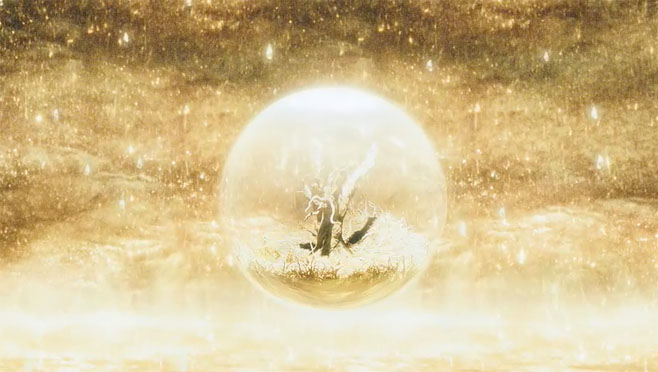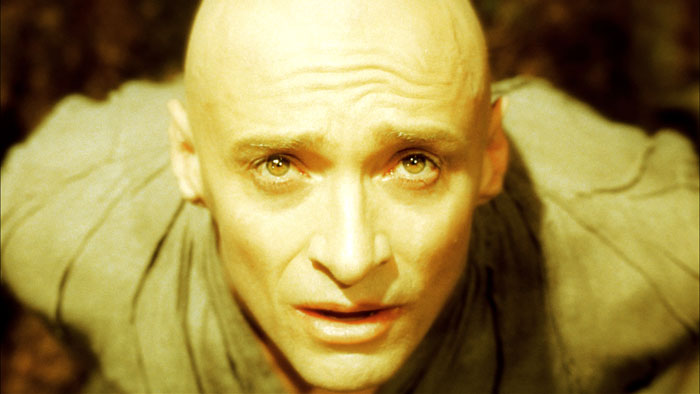“Clearly, what U.S. forces are currently doing in Iraq is not working well enough or fast enough.” Hewing closer to the McNamara paradigm than I’d earlier thought, Rumsfeld apparently questioned the Iraq war’s course on his way out the door. “Michael O’Hanlon, a defense analyst at the Brookings Institution, said the revelation of the memo would undercut any attempt by President Bush to defend anything resembling a ‘stay the course’ policy in Iraq.’When you have the outgoing secretary of defense, the main architect of Bush’s policy, saying it’s failing, that puts a lot more pressure on Bush.’”
Category: World at Large
A Legacy of Failure.
“Historians are loath to predict the future. It is impossible to say with certainty how Bush will be ranked in, say, 2050. But somehow, in his first six years in office he has managed to combine the lapses of leadership, misguided policies and abuse of power of his failed predecessors. I think there is no alternative but to rank him as the worst president in U.S. history.” Columbia’s Eric Foner makes the case for Dubya as the worst president ever. Also weighing in on the question: Columbia PhD (and Slate columnist) David Greenberg, Douglas Brinkley, Michael Lind, and Vincent J. Cannato. (I discussed Dubya’s ranking briefly here.)
You Can’t Win with a Losing Hand.
“So the choice is between a terrible decision and one that is even worse. The terrible decision is just to begin leaving, knowing that even more innocent civilians will be killed and that we’ll be dealing with agitation out of Iraq for years to come. The worse decision would be to wait another year, or two, or three and then take that terrible course.” While parsing the forthcoming recommendations of the Baker-Hamilton commission (which, among other things, calls for Iraqification of the war (sound familiar?) and a near-complete troop withdrawal by early 2008), journalist and Blind into Baghdad author James Fallows changes his mind about the merits of maintaining our military presence in Iraq: “If it is not in our power to prevent these disasters, then it is better to do as little extra damage to ourselves as possible before they occur.”
This Wheel’s on Fire.
“To talk of grand schemes — partitioning Iraq or pressuring Maliki to form a ‘reconciliation government’ and amend his constitution — is, quite apart from their merits, plainly absurd, because we have no control over what the Iraqis do. We still have some control, though, over what we do and, maybe, over what we can persuade others to do with us.” In related news, Slate‘s Fred Kaplan, who seems to advocate hunkering down for the long haul over withdrawal, ponders what to do should the Maliki government in Iraq fall apart.
Goldengrove Unleaving.

Admirably ambitious and running the emotional gamut from syrupy to sublime, Darren Aronofsky’s The Fountain is a resolutely uncommercial big-think sci-fi piece that I expect will strongly divide audiences. (My guess is, you’ll either love the film or turn on it in the first half-hour.) I found it a bit broad at times, particularly in the early going, and I definitely had to make a conscious decision to run with it. That being said, I thought The Fountain ultimately pays considerable dividends as a stylish, imaginative, and melancholy celebration of the inexorable cycle of life, from birth to death ad infinitum. In its reach, The Fountain at times suggests 2001, and even if that reach probably exceeds its grasp by the end, it should still be applauded for so fearlessly tackling such heady themes, box office be damned. And if nothing else, The Fountain will not only make you contemplate the meaning of it all, but contains several haunting images, like scraps of a fever dream, that will resonate long after the movie’s over. All in all, not bad for ten bucks.
Like Requiem for a Dream and especially Pi, The Fountain is more about mood than plot, per se. Nevertheless, we begin in the sixteenth century, with a scruffy conquistador (Hugh Jackman, having a banner year) paying respects to what appears to be his beloved (Rachel Weisz) before embarking on a suicide mission against a Mayan temple. Before we’re fully acclimated to what’s going on, we’ve leapt to the twenty-sixth century (No, no Twiki), where that conquistador is now a bald, tattooed, Tai Chi practicing monk, traveling across the cosmos with an ailing tree and suffering visions from an age long hence. After a few bewildering minutes here, we find ourselves in our present, where neuroscientist Tom Creo (Jackman) is struggling against time to develop a cure for his wife Izzy (Weisz), before she succumbs to a brain tumor. As The Fountain progresses and we switch back and forth through these three timelines, a picture slowly coalesces of a man-out-of-time (no, not him either), determined beyond all bounds of hope or reason to defeat death and defend his one, true love from its thrall.
In all honesty, The Fountain suffers from some clunky moments in the early going, particularly when Weisz is forced to deliver exposition regarding Mayan beliefs about the Tree of Life, Xibalba (the Mayan underworld), and the Orion Nebula. And some, such as former Slate writer David Edelstein, couldn’t seem to get past the Clint Mansell score, which — as in Pi and Requiem — is hypnotic-bordering-on-intrusive. But, once you get past the somewhat unwieldy set-up, I found the movie’s themes considerably more sophisticated and less banal than most reviewers are giving it credit for. The romance here is pushed front-and-center, sure, but I found The Fountain moving less as a simple love-conquers-all tale than as an eloquent Zen meditation on mortality. (As one character puts it in the film, “Death is the road to awe.”) If matter is neither created nor destroyed, then, in a way, we are all immortal — the elements that make us up were around since the Big Bang and will continue to be around, reconstituted in other forms, long after we’re dead (“in the stars above, in the tall grass, and the ones we love,” to paraphrase a poet when he contemplated a similar plight to Jackman’s.) Indeed, in this fashion, each of us — made up of a combination of matter that, however briefly, has achieved sentience — is the universe trying to express itself. That is no small thing.
Moreover, in The Fountain (and akin to Jacob’s Ladder), Jackman’s character ultimately isn’t fighting to save his love as much as fighting his fear and despair over loss, not only of Weisz but of himself, his own ego: in short, his fear of death. As Weisz’s character says several times over, “I’m not afraid anymore.…Finish it.” Jackman’s Creo is afraid, so he won’t or can’t. “Without accepting the fact that everything changes, we cannot find perfect composure,” writes Shunryu Suzuki in Zen Mind, Beginner’s Mind. “But unfortunately, although it is true, it is difficult for us to accept it. Because we cannot accept the truth of transiency, we suffer.” To my mind, this suffering, and the overcoming of it, lies at the heart of Aronofsky’s The Fountain. I thought the richness of both its vision and its ideas helps it elide over a lot of the pacing and exposition problems in the early going. So, in sum, go see The Fountain: I’m not sure you’ll like it — it’s very possible you’ll love it — but I’m willing to bet, either way, that it’ll stick with you.
[One addendum/caveat/boast: As it happens, I saw The Fountain Monday night at a very private screening/cocktail affair. (How’d I get in? Long story…basically, Aronofsky and I have a mutual friend.) I’ve admitted earlier to being an inveterate celebrity hound, and in terms of celeb-spotting this was manna from Heaven. Of maybe 40-50 attendees, 10-15 were instantly recognizable folk: Not only Aronofsky, Jackman, Weisz, and Ellen Burstyn (also in the film), but a gaggle of other high-profile celebs: Bowie(!), Lou Reed, Mike Myers, Iman, Helena Christiansen, Ben Chaplin, Elizabeth Berkeley, etc. So, I’m almost positive I’d have liked and recommended The Fountain regardless, but I’m forced to admit (re: would like to brag) that I saw it under more-than-ideal circumstances. (Yes, I played it cool despite being famestruck, but I’d be lying if every so often in the first half-hour of the film I found myself thinking “Am I really sharing an armrest with Famke Janssen right now? How bizarre.” Not very Zen of me, I know, but sometimes I’m just a material guy.)]

Gates, See Clifford.
“It’s not quite clear what George W. Bush wants Robert Gates to do. But it’s doubtful Gates would have come back to Washington, from his pleasant perch as president of Texas A&M, if the job description read ‘staying the course on Iraq.’” Invoking Clark Clifford to make his case, Slate‘s Fred Kaplan suggests what incoming SecDef Robert Gates may be able to accomplish over the next two years.
Should the Dems Secede?
“For the first time in 50 years, the party that controls both chambers of Congress is a minority party in the South. And in the last four presidential elections, the Democratic candidate has either garnered 270 electoral votes, the minimum needed to win, or has come within one state of doing so before a single Southern vote was tallied. Outside the old Confederacy, the nation is turning blue, and that portends a new map for a future Democratic majority.” In Salon, University of Maryland assistant prof. Thomas Schaller suggests the Dems should forget about the South. So, what happened to the 50-state strategy? As the critical importance of Senator-elect Webb’s recent win suggests, the Dems write off any region of the country at their peril.
A Kingly Tribute.
“This sweltering summer of the Negro’s legitimate discontent will not pass until there is an invigorating autumn of freedom and equality. Nineteen sixty-three is not an end, but a beginning.” Ground is broken on the new MLK memorial, to be “built along the edge of the Tidal Basin, midway between monuments to Thomas Jefferson and Abraham Lincoln. It will be the first on the Mall honoring an African American and the first that does not memorialize a president or a war hero.” Great! As I’ve said before in this space, I’m all in favor of adding more historically-themed monuments to the Mall, and a tribute to Dr. King seems a particularly worthy addition to our nation’s central gathering place.
Hail to Hizzoner?
First Vilsack, then McCain…Now Rudy Giuliani looks to be throwing his hat in the 2008 ring. But is the GOP base really of a New York state of mind? Somehow, I’d doubt it.
Heck of a Job, Karl.
“‘My job is not to be a prognosticator,’ he said. ‘My job is not to go out there and wring my hands and say, “We’re going to lose.” I’m looking at the data and seeing if I can figure out, Where can we be? I told the President, “I don’t know where this is going to end up. But I see our way clear to Republican control.”‘” Um, you do? It’s the Election 2006 post-mortem y’all have been waiting for: Karl Rove discusses the results of the midterms, and while he correctly cites the war and the GOP’s considerable corruption problem, he still doesn’t seem to get the big picture. Fine with me…Rove, just keep doin’ what you’re doin’. It worked splendidly. Update: More here.
